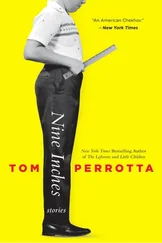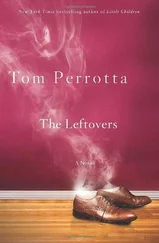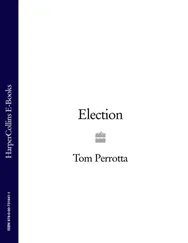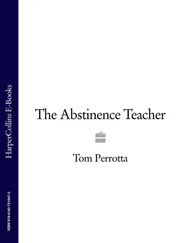Phil Hart himself wasn't the greatest singer in the world, but he was a true showman. The man had style. Dave always took a moment to admire his distinctive way of moving onstage, a high-elbowed liquidy sway that was the essence of geriatric cool. If you asked, Phil would happily reveal the secret of his remarkable vitality.
“Artificial hips!” he'd exclaim, shaking his head at the marvels of modern technology. “I can wiggle again!”
One of the things Dave liked best about the wedding band was its efficiency. They could set up in twenty minutes and break down even faster than that. Some of the rock bands he'd played in had been weighed down by so much equipment that he'd felt more like a roadie than a musician. Lockjaw was the worst offender. He remembered an outdoor Battle of the Bands where they'd taken four hours to set up for a forty-five-minute performance marred by such earsplitting shrieks of feedback that even the die-hard headbangers in the audience were squeezing their ears, begging for mercy. (Lockjaw came in fifth out of five bands and dissolved a few months later.)
The Wishbones made music on a more human scale. Dave had joined the band with a number of reservations—the uniforms, the cheesy tunes, Artie's reputation as a ballbuster—but he quickly came to realize that the rewards went far beyond the two hundred dollars he got for playing a four-hour gig.
It turned out, amazingly enough, to be a blast. People drank at weddings. They danced like maniacs. They clapped and hooted and made requests. Every now and then, when the chemistry was right, things got raucous. And when that happened, the Wishbones knew how to crank up the volume and rock, with no apologies to anyone.
Dave had friends who were still chasing their dreams, playing in dingy clubs to audiences of twelve bored drunks, splitting thirty-nine dollars among four guys at the end of the night, then dragging themselves home at three o'clock in the morning. He saw the best of them growing exhausted and bitter, endlessly chewing over the thankless question of why the world still didn't give a shit.
Dave himself still hadn't completely surrendered his dream of the Big Time, but he had moved it to the back burner. Someday, maybe, the perfect band would come along, a band so good that no one would be able to say no to them. Until then, though, Dave was a Wishbone, and it was a helluva lot better than nothing.
Afterwards, because the event came to seem so significant in retrospect, he sometimes found himself trying to reconstruct it in his memory, as though the smallest detail might hold the key to some larger mystery.
The Wishbones had just finished setting up when the Heart-string Orchestra broke into “Like a Virgin,” their next-to-last tune of the night. If Madonna had happened to wander into the Sundown to check out the showcase, Dave thought she would have approved. Phil Hart gave the song a hilarious deadpan interpretation, as though it had never entered his mind that some people might find it amusing to see a seventy-three-year-old man with artificial hips doing a dignified shimmy at the mike stand as he sang about being touched for the very first time.
Dave leaned his guitar against his amp and stepped down from the rickety wooden platform that served as stage #1. He waved to the waitress, a brassy-haired woman of indeterminate age named Hilda, and mimed the act of bringing a glass to his mouth. Hilda nodded, but moved across the lounge in the opposite direction to wait on some paying customers, a young couple holding hands across the table and gazing at each other with that blissful prenewlywed intensity that would somehow evolve over the next two decades into the vacant stares of the long-married. It wasn't until Ian sidled up to him a few seconds later that Dave realized he'd been frozen in place, the invisible empty glass still tilted to his lips.
“Mick Box,” said Ian.
“Shit,” said Dave.
At every Wishbone function, Ian tried to stump Dave with a piece of rock trivia. He specialized in obscure British musicians from second-rate bands of the early seventies.
“Take your time,” Ian taunted. “It'll come to you.”
“Mick Box,” Dave chanted. “Mick Box … Mick Box … Mick Box …”
“You probably haven't thought about this band for fifteen years.”
A face began to take shape in Dave's mind. Narrow, ferrety features. The obligatory hair.
“I'm seeing a mustache,” he said.
“If it's a Fu Manchu, you're definitely getting warmer.”
“I want to say Mott the Hoople, but that's Mick Ronson.”
Dave's eyes strayed around the lounge as he attempted to place the mustachioed Mick in a band he hadn't thought about for fifteen years. Up on stage #2, Phil Hart was twisting his way through a musical interlude in “Like a Virgin.” On stage #1, Artie was lecturing Stan about proper Wishbone attire, frowning and jabbing his finger in the direction of the offending work boots. Stan kept nodding like a kid, mouthing the words, “Okay, okay,” over and over again.
“I give up,” said Dave. “Is it Slade?”
“Close,” groaned Ian. He winced as though pained on Dave's behalf. “Mick Box was in Uriah Heep.”
“Damn. I used to love Uriah Heep.”
“Easy Livin',” agreed Ian. “One of the great tunes of all time.”
“Mick Box,” laughed Dave. “What the fuck kind of name is that?”
In the middle of the lounge, the gazers were still enraptured with one another while Hilda stood by, pencil in hand, looking bored. At a nearby table, Alan Zelack touched wineglasses with a ridiculously beautiful woman in a slinky black dress who appeared to have materialized out of nowhere. With the sixth sense of a complete asshole, Zelack turned slowly, grinning with triumphant smugness, and raised his glass in greeting. Dave pretended not to notice.
“What the fuck kind of name is Uriah Heep?” Ian wondered.
That was when it happened. Dave looked up just in time to watch Phil Hart stop singing in the middle of the final chorus. A look of mild surprise passed across his face— recognition , Dave would later decide—as he turned slightly to the left. He wobbled— there was no other word for it—and the microphone slipped through his fingers, bouncing off the stage with a percussive cough of static.
Joey stopped drumming and looked around in alarm. Phil remained upright for a moment, empty-handed and wonder stricken, before sinking, almost gently, to his knees. Walter kept pounding his electric piano, oblivious to everything but the final measures of the song. Phil's eyes got big. He flung his arms wide like Al Jolson, as if to embrace his fate, and then pitched suddenly forward, landing facedown on the stage in a position he never would have chosen if he'd been offered even the slightest amount of choice in the matter.
Two hours later, drained and without flowers, Dave pulled up in front of Julie's house. He sat in the car for a few minutes listening to the engine tick, trying to work up the energy to open the door.
For the first time in his life, he had actually watched someone die—a man he liked and admired—and for the moment, at least, everything else seemed insubstantial, not fully serious. The thought of facing Julie's parents no longer disturbed him. Instead he felt a strange tenderness, as though he were preparing to visit them in the hospital.
It hadn't taken Phil Hart a long time to die, but an eternity seemed to have passed between the moment of his collapse and the arrival of medical assistance. At first the whole room seemed paralyzed, as though everyone were simply waiting for Phil to leap up and finish the song. Finally, Mel, the arthritic sax player, bent down with visible difficulty and retrieved the fallen microphone.
“Phil's hurt,” he announced, in a voice too calm for the circumstances. “Would someone be kind enough to call an ambulance?”
Читать дальше












